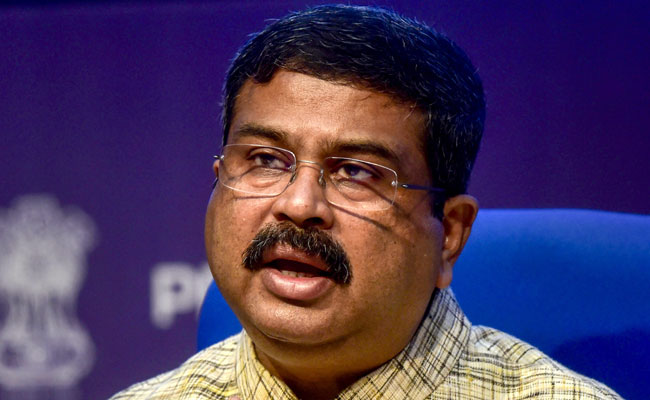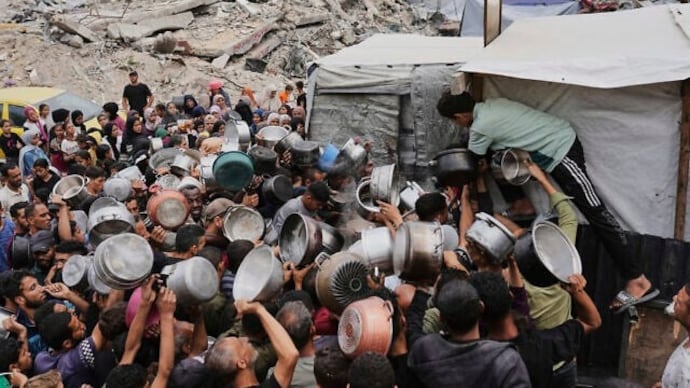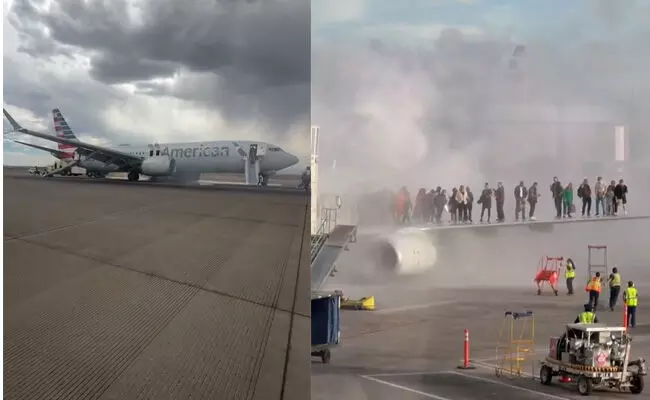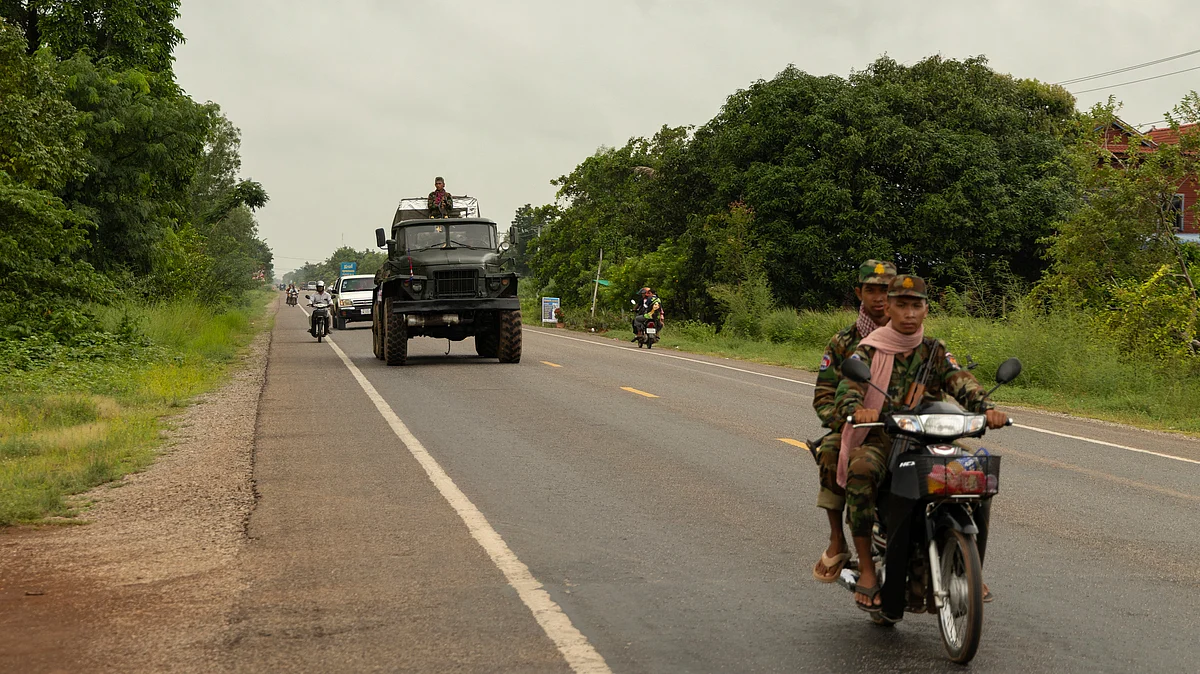Raipur (PTI): Union Education Minister Dharmendra Pradhan has said students will get an option of appearing for 10th and 12th class board examinations twice a year from the academic session 2025-26.
One of the objectives of the new National Education Policy (NEP), unveiled in 2020, is to reduce the academic stress on students, Pradhan said on Monday after launching the PM SHRI (Prime Minister Schools for Rising India) scheme in Chhattisgarh under which 211 schools of the state will be upgraded.
The function was held at the Pandit Deendayal Upadhyay auditorium in Raipur.
Highlighting the concept of introducing 10 bag-less days in school every year, the minister stressed on engaging students with art, culture and sports, among other activities.
On the Centre's plan under the NEP 2020, Pradhan said from the 2025-26 academic session, students will get an opportunity to appear for the 10th and 12th class board exams twice.
According to the New Curriculum Framework (NCF) announced by the Ministry of Education in August last year, board examinations will be held at least twice a year to ensure students have enough time and opportunity to perform well. They will also get the option to retain the best score.
Pradhan asked students present at the function if they were happy with the decision, and told them to keep the best marks obtained after appearing in both the exams.
"Prime Minister Narendra Modi ji's vision through the NEP is to keep students stress-free, enrich them with quality education, keep students linked with culture and prepare them for the future. This is the formula for making India a developed country by 2047," he said.
Pradhan slammed the previous Congress government in the state, saying education was not its priority, but the key sector has received utmost importance after the BJP came to power and new Chief Minister Vishnu Deo Sai assumed office in December last year.
In the first phase of the PM SHRI scheme, 211 schools (193 elementary level and 18 secondary ones) will be upgraded in Chhattisgarh on a 'hub and spoke' model by spending Rs 2 crore on each of them, the Union minister said.
Under the model, the mentor institution, called the 'hub', will be centralised and have the responsibility of guiding the mentee institution through the secondary branches, the 'spoke', via services provided to the mentee for self-improvement.
As per a request made by Chhattisgarh's School and Higher Education Minister Brijmohan Agrawal, more secondary and higher secondary schools will be covered under the scheme in its next phase, Pradhan said.
He said India will bid to host the 2036 Olympics Games and he expects that 10 per cent of medals for the country in the quadrennial event should come from Chhattisgarh athletes and preparations for it should start from this year itself.
Chief Minister Sai, minister Agrawal and other senior officials were present at the function.
Let the Truth be known. If you read VB and like VB, please be a VB Supporter and Help us deliver the Truth to one and all.
Deir al-Balah (Gaza Strip) (AP): The Israeli military said Sunday it would pause fighting in three populated areas of Gaza for 10 hours a day and open secure routes for aid delivery to desperate Palestinians, launching a series of steps meant to address a surge in hunger in the territory as Israel faces a wave of international criticism over its conduct in the 21-month war.
The military said it would begin a “tactical pause” in Gaza City, Deir al-Balah and Muwasi, three areas of the territory with large populations, to “increase the scale of humanitarian aid” entering the territory.
The pause would begin every day at 10:00 am to 8:00 pm local time until further notice, beginning Sunday.
The military also said Sunday that it carried out aid airdrops into Gaza, which included packages of aid with flour, sugar and canned food.
Food experts have warned for months of the risk of famine in Gaza, where Israel has restricted aid because it says Hamas siphons off goods to help bolster its rule.
Images emerging from Gaza in recent days of emaciated children have fanned global criticism of Israel, including by close allies, who have called for an end to the war and the humanitarian catastrophe it has spawned.
Israel said the new measures were taking place while it continues its offensive against Hamas in other areas.
The local pause in fighting came days after ceasefire efforts between Israel and Hamas appeared to be in doubt. On Friday, Israel and the U.S. recalled their negotiating teams, blaming Hamas, and Israel said it was considering “alternative options” to ceasefire talks with the militant group.
After ending the latest ceasefire in March, Israel cut off the entry of food, medicine, fuel and other supplies completely to Gaza for 2 ½ months, saying it aimed to pressure Hamas to release hostages.
Under international pressure, Israel slightly eased the blockade in May. Since then, it has allowed in around 4,500 trucks for the UN and other aid groups to distribute. The average of 69 trucks a day, however, is far below the 500 to 600 trucks a day the UN says are needed for Gaza. The UN says it has been unable to distribute much of the aid because hungry crowds and gangs take most of it from its arriving trucks.
As a way to divert aid delivery away from the UN, Israel has backed the US-registered Gaza Humanitarian Foundation, which in May opened four centers distributing boxes of food supplies. More than 1,000 Palestinians have been killed by Israeli forces since May while trying to get food, mostly near those new aid sites, the UN human rights office says.
Israel has railed against the UN throughout the war, saying that its system allowed Hamas to steal aid, without providing evidence. The UN denies that claim and says its delivery mechanism was the best way to bring aid to Palestinians.
The military said the new steps were made in coordination with the U.N. and other humanitarian groups.
Much of Gaza's population, squeezed by fighting into ever tinier patches of land, now relies on aid.
The war began with Hamas' Oct 7, 2023, attack on southern Israel, when militants killed 1,200 people, mostly civilians, and took 251 hostages. Hamas still holds 50 hostages, more than half of them believed to be dead.
Israel's retaliatory offensive has killed more than 59,700 Palestinians, according to Gaza's Health Ministry. Its count doesn't distinguish between militants and civilians, but the ministry says that more than half of the dead are women and children. The ministry operates under the Hamas government. The U.N. and other international organisations see it as the most reliable source of data on casualties.





_vb_84.jpeg)